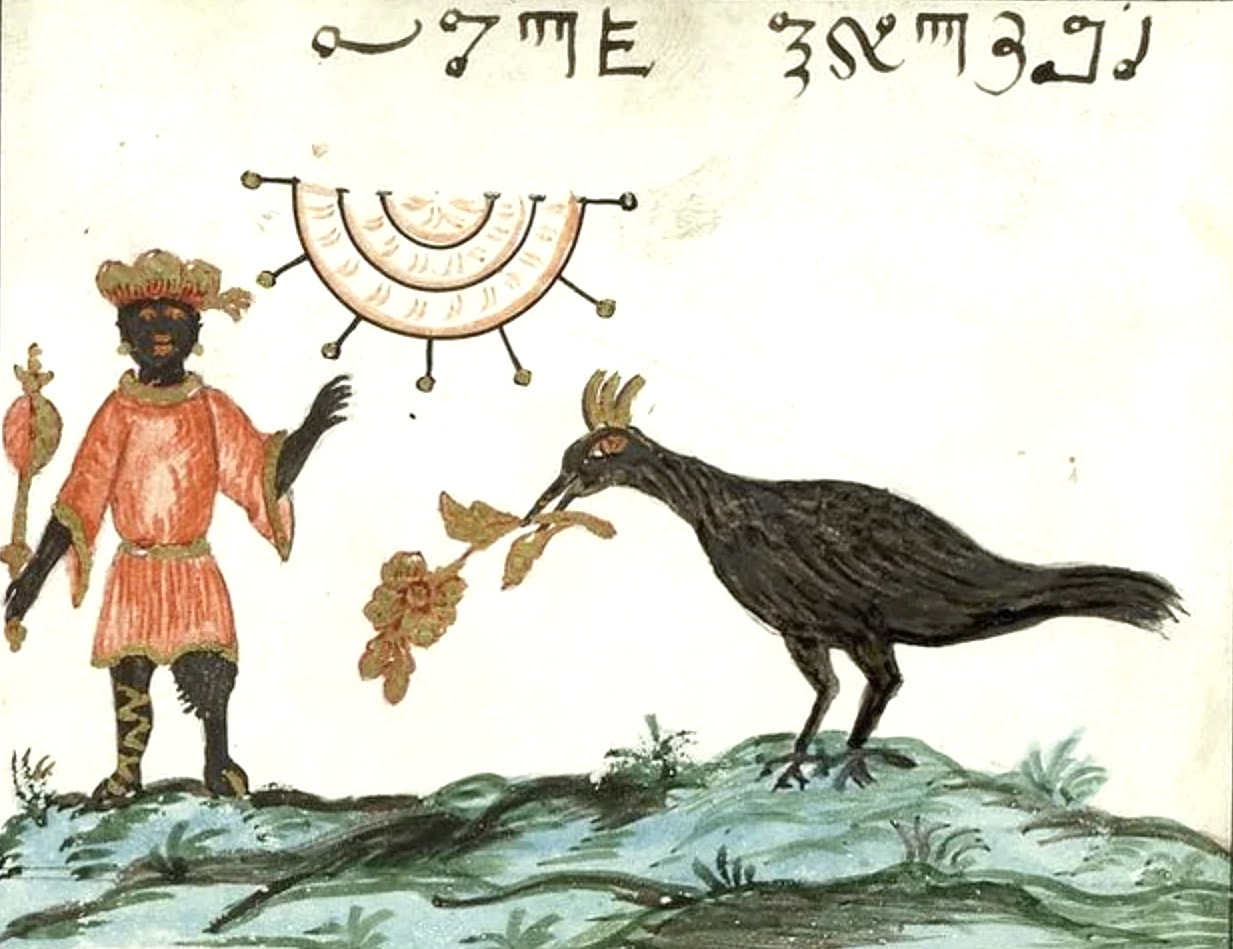Amaymon

Amaymon (also Amaimon, Maymon, Amoymon) is a prince of Hell, and, according to some grimoires, the only one who has power over Asmoday.
He is usually named in grimoires alongside Oriens, Egyn, and Paimon as kings of the cardinal directions. He variously described as the king of the north, east, or south. According to Clavis Inferni, he is king of the north.
Description
Amaymon is said to have a deadly poisonous breath.
The Lesser Key of Solomon states that the exorcist or conjurer must be in possession of a silver ring, that is duly consecrated and worn on the middle finger, as a form of protection against this poisonous astral breath.
In The Book of the Sacred Magic of Abramelin the Mage, translated by S. L. MacGregor Mathers, Amaymon (as Amaimon) is one of the eight sub-princes, described as an Egyptian devil, who Abramelin restrained from working evil from the third hour until noon and from the ninth hour until evening.
Cardinal direction ruler
According to Pseudomonarchia Daemonum and the Lesser Key of Solomon he is the king of the east.
In the Liber Officiorum Spirituum and the The Book of the Sacred Magic of Abramelin the Mage, he is stated to be the king of the south.
The 1717 grimoire Clavis Inferni lists him as king of the north.
Removal of hat
A curious characteristic of this spirit in almost all copies of the Ars Goetia in English, that during the evocation of Asmoday to visible appearance, the exorcist must stand upright with his cap or headdress removed in a show of respect, because if he does not do so, then Amaymon will deceive him and doom all of his work.
According to Joseph H. Peterson, editor of "The Lesser Key of Solomon" (Weiser 2001) this is a "bizarre translation of 'si vero coopertus fuerit'" by Reginald Scot in The Discoverie of Witchcraft which contains a translation by Scot of Pseudomonarchia Daemonum by Johann Weyer. Peterson's edition includes as an appendix, a copy of Weyer's Pseudomonarchia Daemonum in the original Latin where we find the phrase: Cum hujus officia exercet exorcista, fit fortis, cautus & in pedibus stans: si vero coopertus fuerit, ut in omnibus detegatur, efficiet: Quod si non fecerit exorcista, ab Amaymone in cunctis decipietur. This translates to "When the exorcist performs his offices, he should be strong, cautious and standing on his feet: if he will be truly overwhelmed he will bring it about that in all things he is unprotected: But if the exorcist does not, by Amaymon he will be deceived in whole."
In the original text by Johann Weyer, there is nothing about taking off caps or headdresses when evoking Asmoday. The curious characteristic replicated in every known English text of the Ars Goetia seems to arise from laziness on the part of Scot and generations of scribes replicating the English text without checking the original Latin.